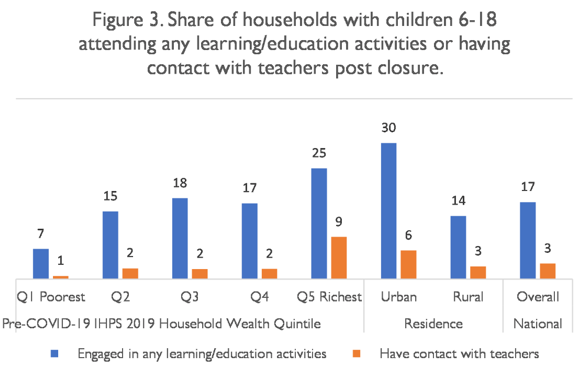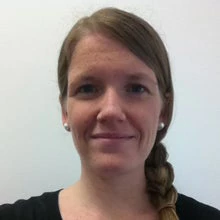The Malawi National Statistical Office (NSO), in collaboration with the World Bank’s Living Standards Measurement Study (LSMS) program and the Poverty and Equity Global Practice, disseminated the data and survey report tied to the first round of the High-Frequency Phone Survey on COVID-19 (HFPS COVID-19) on August 7, 2020. The financing for data collection and technical assistance in support of the Malawi HFPS COVID-19 is provided by the World Bank and the United States Agency for International Development (USAID).
The HFPS COVID-19 was launched in May 2020 to track the socio-economic impacts of the pandemic in Malawi on a monthly basis for a period of 12 months. The first round of the survey was conducted during the period of May 26-June 14 and aimed to recontact the entire sample of households that had been interviewed during the 2019 Integrated Household Panel Survey (IHPS) and that had a phone number for at least one household member or a reference individual. In Round 1, HFPS COVID-19 successfully interviewed respondents from 74% of the initial target of 2,337 households.
Here are some key findings from the first round of the survey:
Knowledge of COVID-19 transmission
- Handwashing with soap (99%), maintaining enough distance of at least 1 meter (76%), avoiding crowded places or gatherings with many people (61%) are the most commonly reported measures of reducing risk.
Concerns of COVID-19 transmission
- 94% of respondents reported to be very worried or somewhat worried about themselves or their immediate family member(s) becoming seriously ill from COVID-19.
- 96% of respondents considered this crisis as a substantial or moderate threat to their household’s finance.
Access to basic needs
- 10% of households needed medical treatment but reported not being able to access it.
- 23% of households needing cleaning supplies reported not being able to purchase it.
- 15% of households needed to buy maize in the last 7 days prior to the interview but could not do so, mainly due to high prices and lack of cash/credit.
Education
- School closures have caused a drastic reduction in access to learning and education.
- Even in the wealthiest quintile, only 25% of households are participating in any type of learning activity.
- In the poorest quintile, only 7% of households are participating in any type of learning activity.

Food security
- The prevalence of (i) severe and (ii) moderate or severe food insecurity, based on the Food Insecurity Experience Scale, among the adult population is high throughout Malawi, though more pronounced in rural areas.
- Even among adults living in households in the richest wealth quintile, more than half are experiencing moderate or severe food insecurity (52%).
Employment and livelihood
- Although most respondents continued to work as usual, approximately 9% of respondents stopped working over the last week prior to the interview.
- 68% of workers in rural areas have continued their usual economic activities compared to 73% of their urban counterparts.
Agriculture
- 8% of farmers engaged in crop farming during the 2019/20 rainy season reported that the COVID-19 outbreak has affected their crop harvesting decisions.
- Of the households whose harvest decisions were affected, delaying harvest due to COVID-19 is widely reported throughout Malawi.
Click here to download Round 1 data and here to access the Round 1 report.
The members of the team working on the Malawi High-Frequency Phone Survey on COVID-19 (listed in alphabetical order for each institution) are: NSO: Lizzie Chikoti, Mercy Kanyuka, Tiope Mleme, Bright Mvula, Isaac Mwale, and Twika Mwalwanda; World Bank: Wilbert Vundru Drazi (LSMS), Habtamu Fuje (Poverty and Equity GP), John Ilukor (LSMS), Shelton Kanyanda (LSMS), Talip Kilic (LSMS), Heather Moylan (LSMS), and Nobuo Yoshida (Poverty and Equity GP).






Join the Conversation